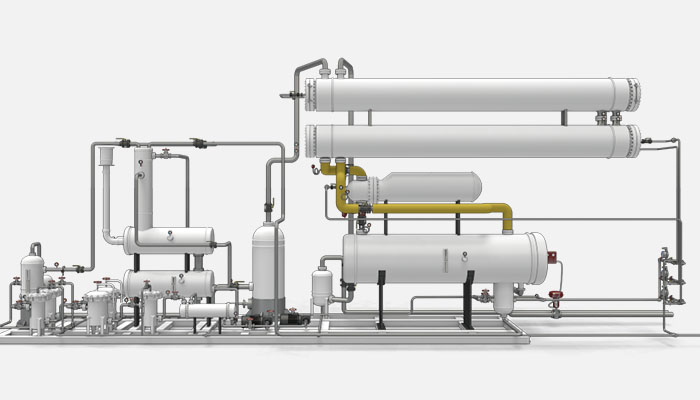MEG Refrigeration - Intermediate
Provides a base overview of process principles of liquid desiccants and basic plant chemistry, and a general equipment overview and process run-through for the entire monoethylene glycol (MEG) refrigeration process.
Course Price
400

Content
Tartan Academy Instructions
1.1 Hydrate Formation & Control Methodologies
1.2 Gas Hydrate Structures & Formation Composition 1
1.3 Gas Hydrate Structures & Formation Composition 2
1.4 Effect of Gas Composition on Hydrate Formation
2.1 Hydrate Control Methods - Chemical Inhibition 1
2.2 Hydrate Control Methods - Chemical Inhibition 2
2.3 Hydrate Control Methods - Liquid Desiccants
2.4 Hydrate Control Methods - Heat Application
3.1 Process Principles Liquid and Solid Desiccants
3.2 Water Content Calculation 1
3.3 Water Content Calculation 2
3.4 Dewpoint Depression
3.5 Dewpoint Analyzers
4.1 Different Types of Glycols
4.2 Applicable Uses for MEG
5.1 Refrigeration Process Equipment Overview 1
5.2 Refrigeration Process Equipment Overview 2
5.3 Inlet Separator
5.4 Gas/gas Exchangers
5.5 Propane Chiller
5.6 JT Valve
5.7 Low Temperature Separator 1
5.8 Low Temperature Separator 2
5.9 Reflux Coil
5.10 Flash Tank
5.11 Particulate Filters
5.12 Activated Carbon Cartridge and Bed
5.13 Lean-Rich MEG Heat Exchanger
5.14 Still Column
5.15 Reboiler
5.16 Glycol Accumulator or Surge Tank
5.17 Glycol Circulation & Injection Pumps
6.1 Injection Nozzle Considerations
6.2 Injection Nozzle Location
6.3 Injection Nozzle Selection
6.4 Injection Nozzle Wear
7.1 Summary

